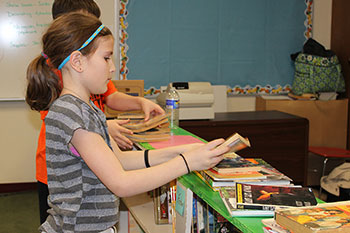Literacy

Third grade is when students are required to start reading in all disciplines, so third grade is when children need to stop “learning to read” so that they can “read to learn.” That makes it imperative that students are proficient in reading by 3rd grade—if they aren’t, they will start to struggle in every subject solely based on their reading ability.
Geneva 2030’s Literacy Action Team has been working with local leaders of summer programs to build literacy support into our summer programming around the community. With only 24% of 3rd grade GCSD students testing as proficient in ELA in 2019, there is still much work to be done. We must note, however, that in 2015 our ELA proficiency rate was only 14%. We are energized by this improvement, but fully understand that this issue remains critical and will require sustained, focused, efforts on the part of our entire community. A critical component of this endeavor is examination of systemic factors that contribute to this deficiency, and Geneva 2030 has begun the work of leading that inquiry.
Cited: Success for Geneva's Children 2019 Data Report
In the Spring 2008 issue of Harvard Education Review, the importance of literacy is made clear in the article "Why Adolescent Literacy Matters Now" by authors Jacy Ippolito, Jennifer L. Steele, and Jennifer F. Samson:
"Individuals who lack strong skills for finding, understanding, and evaluating written information cannot easily arm themselves with that information or use it to advance the causes they value. And because a free society depends on an informed and autonomous citizenry, the loss is not theirs alone. As we confront some of the great questions of our time - about war and diplomacy, immigration and citizenship, health care and human rights, and fair access to education and employment - literacy liberates us from dependence on received wisdom and allows us to find and weigh the evidence ourselves. Simply put, literacy is a cornerstone of our freedom."
Additional Information
Why Does Literacy Matter? from Temple, C., D. Ogle, A. Crawford, and P. Freppon (2014). All Children Read, 4th Edition. New York: Pearson
Engaging African American Males in Reading by Alfred W. Tatum; Educational Leadership, February 2006.
Creating the Conditions to Encourage Literate Thinking by Gordon Wells; Educational Leadership, March 1990.
